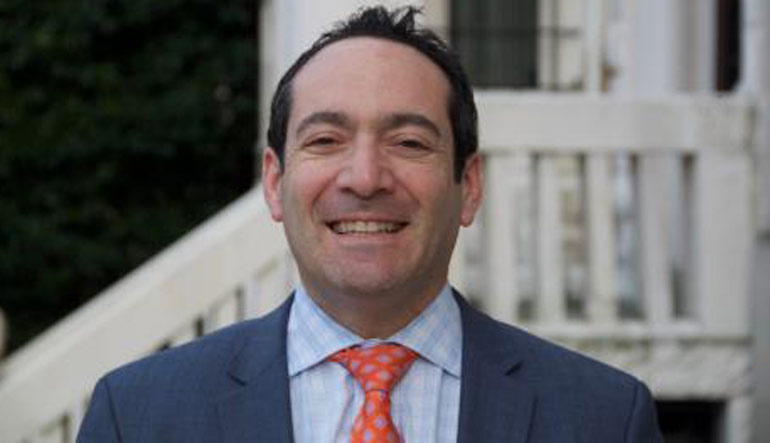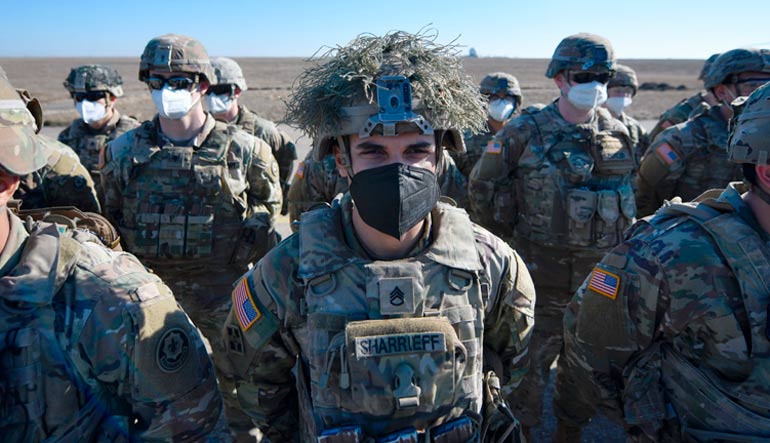Will the war of words over Ukraine degenerate into an actual war and bloodshed? For months now, the two most powerful nations on earth, the United States and Russia, have been eyeing each other like adversaries in a boxing ring. Russia has deployed a large military force on its border with Ukraine, which was part of the Soviet Union three decades ago, but has been gravitating towards NATO and the US.
US President Joe Biden has advised US citizens to leave Ukraine immediately, giving the impression that war is at hand. His Secretary of State Antony Blinken said a Russian invasion of Ukraine could happen anytime, even before Winter Olympics in Beijing gets over in a week.
The United States and a few other NATO states view Russian President Vladimir Putin as an autocrat, and are determined to "call his bluff". Some commentators claim that the West has already done it.
“Outright conflict—as opposed to sudden swoops, covert operations or hybrid warfare— isn’t really Putin’s style,” wrote journalist Yulia Latynina in an opinion piece in The New York Times last month. “It’s probable that the troop buildup in November was an attempt to force the west to relinquish any claims over Ukraine. That would be a great PR victory at minimal cost. But the West called his bluff.”
The article pointed out that the United States and NATO had "taken a markedly sharper tone when discussing Russia" and have sent weapons to eastern Europe and put troops on standby. "The message is clear: If Russia won’t deescalate, then neither will the West," it argued.
There seems to be so many moving parts to this whole story—there are now so many big players, small players and bit players in this drama, and everyone seems to have an interest in the outcome in Ukraine. Recently, even two Irish fishermen spoke up about the military exercises Russia was planning in their waters, and surprisingly the mighty superpower listened to simple fisherfolk, relented and moved the location of the exercises. Maybe these two Irish fishermen need to be added to the peace deliberations!
"Transatlantic unity is essential to presenting a credible deterrent to Russia as it seeks to use Nord Stream 2 and other diplomatic, energy or economic tools to pull the transatlantic allies apart," wrote Jonathan D. Katz, director, Democracy Initiatives, at the German Marshall Fund of the United States, a non-partisan policy organisation based in Washington, DC.
 Jonathan D. Katz | via www.gmfus.org
Jonathan D. Katz | via www.gmfus.org
In a conversation with THE WEEK Katz said what is taking place in Ukraine and eastern Europe is really a continuation of what we have seen over the past dozen years with Putin and the Kremlin trying to maintain what they believe is their sphere of influence in the former Soviet states. These include the countries on Russia’s periphery: Ukraine, Georgia, Moldavia, Belarus, and the Baltic states of Estonia, Latvia and Lithuania.
“These countries have been independent for over 30 years. But Putin, who says that the end of the Soviet Union was a colossal mistake, tries to regain the sphere of interest which he believes Russia should have in these countries,” said Katz, who had worked in these countries for USAID.
At the opposite end are the Ukrainians who have been fighting to become more integrated with the European community, and have really separated in many ways from Russia and the relationship that they had during the Soviet days. The United States and its NATO partners have opened the door to greater Eurocentric integration, as they had with other east European countries that have become members of NATO and the European Union.
Said Katz: “Russia is pushing back against that, and does not want Ukraine to move forward in a direction where they become more integrated, more democratic, and so you really have an unfortunate tug of war where the United States and partners are saying that Ukraine gets to decide its own future, its alliances, its partners, its democracy, not Moscow. They are engaged in a diplomatic marathon to deescalate the situation and put together measures including sanctions which they hope will be a deterrent to Putin.”
So, will Blinken blink or will Putin be painted into a corner? Katz said: “The White House and the State Department, including Secretary Blinken, have really showed that they have more than stepped up in a moment of crisis, to lead the transatlantic community, bringing unparalleled unprecedented support together, and at incredibly short notice.” He said the credit goes to the multiple layers of the US government that have been coordinating with European partners, from the US Treasury Department to the State Department to the National Security Council. The bipartisan Congress, too, has stood behind supporting Ukraine.
He praised Blinken for being the right person at the right time to lead the effort, pointing to his leadership roles in this administration as well his experience in the US Senate and his very close relationship and coordination with Biden. “Clearly there is also a personal part of what Secretary Blinken brings to the table: His family's history, his own experience, and nobody has been a stronger defender of the United States, of democracy, of human rights. And what I appreciate is that he wears his heart on his sleeve when he is addressing these issues. He has got 100 per cent confidence of President Biden in what he is speaking, and the United States is very lucky right now to have a diplomat of his experience.”
Is the huge military buildup on Ukraine’s borders mere scare tactics on Putin’s part or will they be acted out? Recently, Oksana Markarova, Ukraine’s ambassador to the US, said, "I believe nobody is safe if Ukraine is attacked.” Recalling Russia’s 2014 annexation of Crimea, she said: "The reason why Putin attacked us is not because he wants Ukraine, or only Ukraine. The reason he attacked us is because we have chosen to be a democracy and we have the Atlantic and European aspirations."
Katz said Putin’s destabilising role existed not only in Ukraine but also in Libya, in Africa and globally. "If there is no pushback, what would stop Putin from testing the waters in the Baltic countries?” he asked. “What would stop him from militarising in a way that threatened US and European interests? So this is a European security crisis, the most serious security crisis in Europe in over three decades.”
"The Ukrainian Ambassador is right," Katz said. "And that is why you are seeing such a firm and coordinated response from the United States and allies in an unprecedented way, which I have not seen in my time in Washington. Everybody is taking this seriously. Not just because of the impact on Ukraine, which of course is paramount, but also for what this means for overall security.”
Katz said the outcome in Ukraine would go far beyond the local to the global in the years to come, as matters of climate change, energy crisis and the global economy heat up in a world getting increasingly smaller.
“How will autocrats react if they see the democratic world backing down and not standing up for democracy in countries that want to choose their own sovereignty, their territorial integrity and their alliances?” he asked. “There is a tremendous amount on the line beyond just the issue of what Russia is doing. Globally it is coming at a very destabilising moment, both in terms of what is taking place in Europe and internally in the United States. And that is what makes it a very difficult challenge that requires really 100 per cent of the US government and partners to take it on.”
(Lavina Melwani is a New York based journalist who blogs at www.lassiwithlavina.com)





